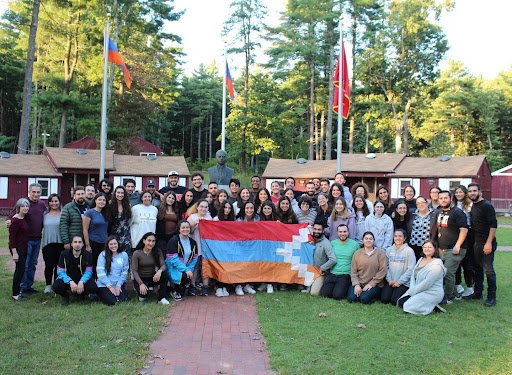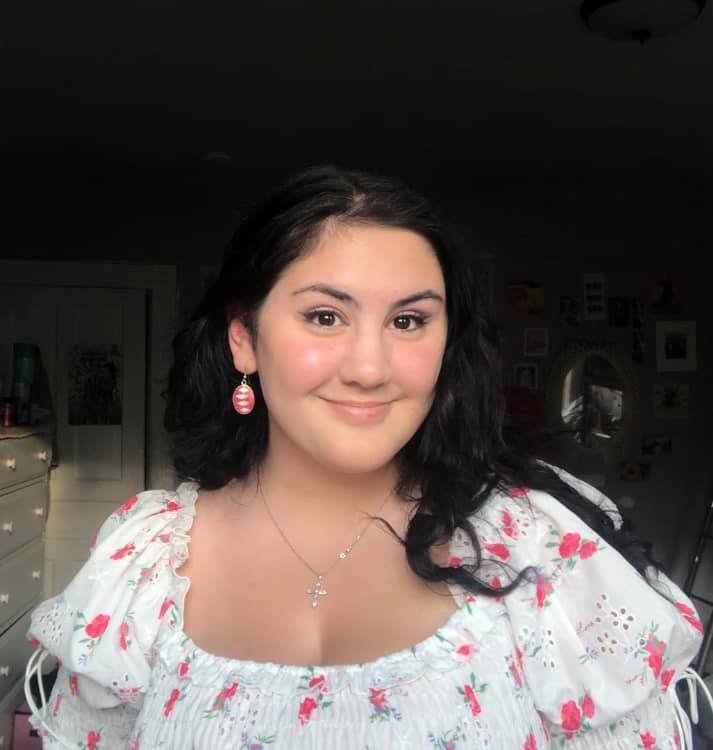
In a time when so much of Armenia’s future is uncertain, banding together as diasporans is the only way to move forward in bolstering the Armenian Cause. Last weekend’s Armenian Youth Federation (AYF) Senior Seminar truly served as a highlight reel of the incredible efforts of AYF members to constantly seek new ways of encouraging national pride and community participation. The energy of an in-person event could be felt by all participants, and the weekend’s slate of fascinating lectures delivered by Armenian-American field experts certainly accomplished its goal of fanning a fire for Hai Tahd in the spirits of attendees. The weekend’s program pushed each individual to explore where their own skills and experiences can be applied to fortify the work of the Cause. Guided by the tagline, “Մենք Միշտ Կանք,” or “We Will Always Be,” discussions of Armenia’s past, present and future informed a fresh understanding of the potential capabilities of AYF and Armenian Revolutionary Federation (ARF) members.
Following an energetic arrival and campfire on Friday night, Saturday’s lectures kicked off with Alex Sarafian’s discussion on investing in Armenia and Artsakh, using his extensive history with investments in the motherland (Aran Winery, the Grand Shushi Hotel) to emphasize the crucial importance of seeking out such ventures. This discussion was followed by a “shark tank” style activity, in which groups were required to create an idea for an investment opportunity in Armenia and present as if they were speaking to a panel of investors. Some of the exceptionally creative ideas offered included an initiative to create affordable 3D-printed prosthetics for wounded/disabled Armenians, selling valuable materials in Armenia’s garbage as opposed to burning it, as well as creating an employment network project in Armenia which would encourage not only Armenian employment, but diasporan work as well. This was followed by a unique lecture by George Aghjayan, director of the Armenian Historical Archives, on genealogy and tracing history through documentation records and historical maps. Aghjayan delved into his experiences both exploring on the ground in Western Armenia, as well as using antique maps in order to reconstruct Armenia’s historical borders. This lecture provided a look into the incredible preservation work being done by Armenian academic experts in order to reaffirm the established legacy of Armenia’s rich history.
In an electrifying lecture delivered by ANCA’s Yeghisapet Chouldjian, the history of the battle of Sardarabad was used as a vehicle for inspiring thought on the role that each individual can play at times of crucial volatility for Armenia. Chouldjian discussed the meaning of a “Sardarabad moment,” or a period in time when Armenians must decide to either commit themselves to their nation, or succumb to the pressure of opposing forces. Chouldjian requested that each attendee identify and declare their role in our current “Sardarabad moment.” The variety of impassioned responses offered by attendees provided a powerful glimmer of hope in the midst of conversation about the instability of Armenia’s future. For some, their role in our “Sardarabad moment” was stepping up in their local community as leaders, educators and proponents of Armenian culture and language. Others expressed a desire to use their fields of study to benefit Armenians in the homeland, such as practicing healthcare in Armenia, or strategizing on energy and water usage efficiency. For yet others, the end goal of repatriation was mentioned. Ultimately, this lecture emphasized the pressing need for each of us to show up for our nation in any and every way possible.
One topic which remained at the forefront of the weekend’s themes was that of improving Armenian language usage among young diasporans. The difficulties of strengthening (or even developing) Armenian language skills as American diasporans, particularly when coming from home or educational environments which do not foster such usage, are universally understood by the Armenian-American diaspora. During a motivating segment delivered by AYF’s Central Language Counsel, seminar attendees were urged to challenge what may feel like an insurmountable goal. In a discussion led by Nareg Kuyumjian of the DC “Ani” chapter, participants were encouraged to prioritize growing their language skills, incorporating practice into their daily lives. This was followed by an Armenian “conversation hour,” a fresh and exciting new addition to the senior seminar program which required all attendees to challenge themselves by speaking Armenian (in whatever capacity possible) in a “speed dating” activity. While participants admitted in the aftermath of the activity that it felt uncomfortable to struggle through conversing in Armenian, the activity overall served as proof of the fact that being willing to practice Armenian, and be corrected when wrong, is not as scary as it seems. In fact, being corrected on improper usage genuinely leads to progress and improvement, something that the vast majority of participants reported to desire.
Seminar attendees were eager to interact with the concepts being explored, and consistently contributed thoughtful, engaging and complex questions to lecture discussions. In one instance, which truly reflected the attitude and character of the AYFers in attendance, participants requested to utilize their rare allotted break to hear the conclusion of Georgi-Ann Oshagan’s lecture on the history of Armenian armed defense efforts, which was halted due to time constraints. Respect and awe at Armenia’s turbulent political history touched the spirits of all who heard the lecture, as it provided a stark reminder of how long and how fiercely Armenians have sought to progress our cause. Attendees also had the honor of hearing from ARF bureau chair Hagop Der Khatchadourian on the state of the nation, as he detailed the present challenges we face and offered ideas on how to approach these challenges, as well as offered insight on the potential directions Armenia may follow going forward.
In addition to the rich educational component of seminar weekend, the cultural aspects similarly reflected the participants’ enthusiasm, beginning with the band which performed at Saturday night’s dance, comprised entirely of AYF members: Alek Surenian on dumbeg, Datev Gevorkian on oud, Sam Sjostedt on oud, Beiyna Chaparian on vocals, and Rosdom Mkrtschjan on tambourine. According to Mkrtschjan, the intention behind the band’s performance was to encourage other young Armenians to learn how to play Armenian music and instruments, a cultural activity often understood as exclusive to a more senior generation. Watching young Armenians perform powerful, historic and joyous songs with musical mastery was a refreshing and inspiring treat for the senior seminar attendees. During the dance, a collaborative and encouraging attitude could be sensed amongst all members, as participants worked together to teach fellow members the steps to various shoorch bars, as well as tested their own knowledge to see which of the less common dances could be recalled and performed. The festivities were followed by the singing of “heghapokhagan” (or “revolutionary”) songs, with Vrej Dawli and Dikran Khodanian explaining the weighty significance of the songs to the group, infusing the experience with an even greater sense of magnitude and pride. This was strengthened by the fact that songbooks, which included both transliterations and English translations, were provided to each seminar attendee, allowing those who may not have a fixed knowledge of revolutionary song lyrics the opportunity to participate in full.
On Sunday morning, as the Artsakh, Armenian and ARF flags were lowered from their poles, attendees participated in the singing of the Artsakh national anthem, a sobering and intimate moment that scraped at the rawness of our recent loss, particularly in the wake of the prior day’s discussions about the war’s impact. However, it is safe to say that anybody who attended this year’s AYF senior seminar undoubtedly walked away with a renewed fire for Hai Tahd and Armenian nation-building, inspired by the passion and determination of their peers.



Be the first to comment